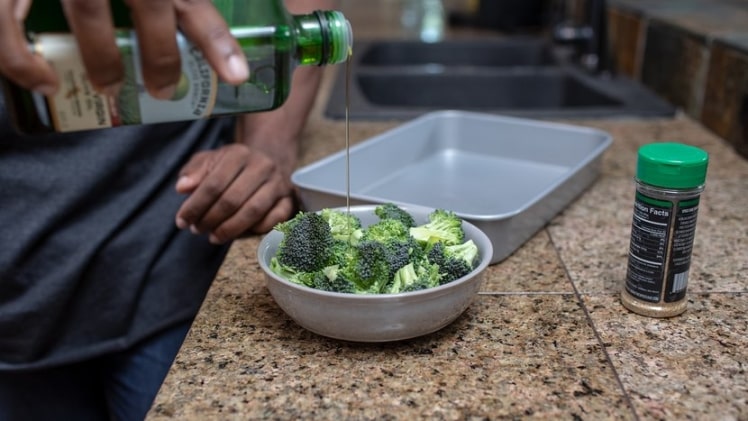Although most athletes tend to be healthy, some struggle with weight and need to focus on gaining healthy weight continuously. This article will help you achieve a healthy weight by concentrating on your diet and daily nutritional requirements.
Ten strategies to gain weight in a healthy way
Here are ten ways to alter your diet and improve your diet to gain weight as an athlete in a healthy way.
1. Eat frequently and consistently
For healthy weight gain that does not lead to the accumulation of fats, you need to plan and make a proper schedule for your food intake. A healthy breakfast, early lunch, late lunch, dinner, and healthy snacks 3-4 times a day should be incorporated into your routine.
Depending on the age, you must eat every 3-5 hours a day to achieve your goal. It is best to note your daily calorie intake and increase 300-400 calories per day from your current routine.
2. Focus on balanced meals
Your meals for a healthy weight gain should consist of nutrients and foods from all food groups to overcome deficiencies. Include 4-5 of the following in your main meals.
- Proteins
- Whole grains
- Dairy products
- Fruits or fruit juices
- Vegetables
- Healthy fats
3. Select high-calorie foods
Enjoy foods and snacks like nuts and nut butter and incorporate high-calorie alternatives of every food group for weight gain. You can read labels and check for calories of different foods and replace them with their counterparts having higher calories.
For example, certain fruit juices have higher calories than others. Similar is the case with vegetables and fruits. You can replace simple breakfast food with high-calorie granola.
4. Eat more significant portions of food
As you need to take smaller food portions to lose weight, similarly, you can increase the portion size to gain weight. Enjoy a larger bowl of breakfast cereal, more significant portions of fruit salads, and a taller glass of milk to achieve that.
5. Eat foods with healthy fats
Foods with higher quantities of healthy fats are a great way to gain weight as an athlete. Foods like peanut butter, olive oil, avocado, and nuts have higher health-promoting fats. They are rich in calories and also help prevent inflammation. You can add these to your meals or take them between meals as a delicious snack.
6. Intake adequate amount of proteins
To gain weight as an athlete, especially when you are younger, is essential for achieving a healthy weight. Including adequate amounts of protein in your food help a lot with weight gain. Also, it is very beneficial to have small protein intakes before and after exercise.
7. Do strength training
Strength training such as lifting weights and pushups can help you get bulky in a good way. It will promote the development of muscles and prevent the accumulation of fats due to high intensity in the workout.
Plus, doing intense workouts demands more food intake. The more you work out, your appetite will be stimulated, and you will want to eat more and drink more water.
8. Consume healthy drinks
Swap your fluid intake with nutritious and caloric beverages. Milk offers a lot of healthy calories, and you can add it to every meal to down some extra calories.
Other than that, you can go for non-dairy substitutes and 100% fruit juices to gain that healthy weight. Smoothies and breakfast drinks are also great ways to refuel your body.
9. Increase intake of snack foods
Crackers, resins, nuts, and other foods are not just delicious to munch on but are also a great way to get some extra calories. Incorporate healthy snacks into your routine, and remember to enjoy snack time between each meal. You can also add bedtime snacks such as a peanut butter toast or milkshake to your routine.
10. Take adequate rest
Rest is essential to let your body properly process your food and activity. Rest between workouts helps prevent fatigue and yields better results afterwards. Sleep is also crucial in this regard, as this is the time when your body allows muscle fibres to rebuild and repair.
Summing it up
Many factors, including diet, lifestyle, and genetics, can impact an athlete’s weight. By following the guide mentioned earlier, you can overcome issues regarding your nutritional requirements and deficiencies. Improvement in the nutrient and caloric intake has the potential to improve performance and health of an athlete significantly.

